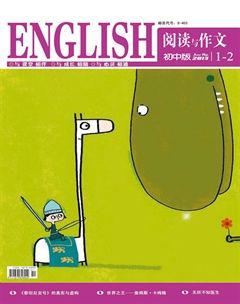初中英语语法总结(动词的时态)
1.1一般现在时的用法
1)经常性或习惯性的动作,常与表示频度的时间状语连用。
时间状语:every…,sometimes,at…,onSunday。例如:
Ileavehomeforschoolat7everymorning.每天早上我七点离开家。
2)客观真理,客观存在,科学事实。例如:
Theearthmovesaroundthesun.地球绕太阳转动。
ShanghailiesintheeastofChina.上海位于中国东部。
3)表示格言或警句。例如:
Pridegoesbeforeafall.骄者必败。
(注意:此用法如果出现在宾语从句中,即使主句是过去时,从句谓语也要用一般现在时。)
例:Columbusprovedthattheearthisround.哥伦布证实了地球是圆的。
4)现在时刻的状态、能力、性格、个性。例如:
Idontwantsomuch.我不要那么多。
AnnwritesgoodEnglishbutdoesnotspeakwell.安英语写得不错,讲的可不行。
比较:NowIputthesugarinthecup.把糖放入杯子。
Iamdoingmyhomeworknow.我正在做功课。
第一句用一般现在时,用于操作演示或指导说明的示范性动作,表示言行的瞬间动作。第二句中的now是进行时的标志,表示正在进行的动作的客观状况,所以后句用一般现在时。
1.2一般过去时的用法
1)在确定的过去时间里所发生的动作或存在的状态。
例如:时间状语有:yesterday,lastweek,anhourago,theotherday,in1982等。例如:
Wheredidyougojustnow?刚才你上哪儿去了?
2)表示在过去一段时间内,经常性或习惯性的动作。例如:
WhenIwasachild,Ioftenplayedfootballinthestreet.
我是个孩子的时候,常在马路上踢足球。
WhenevertheBrownswentduringtheirvisit,theyweregivenawarmwelcome.
那时,布朗一家无论什么时候去,都受到热烈欢迎。
3)句型:Itistimeforsb.todosth“到……时间了”“该……了”。例如:
Itistimeforyoutogotobed.你该睡觉了。
Itistimethatsb.didsth.“时间已迟了”“早该……了”。例如:
Itistimeyouwenttobed.你早该睡觉了。
would(had)rathersb.didsth.表示‘宁愿某人做某事。例如:
Idratheryoucametomorrow.还是明天来吧。
4)wish,wonder,think,hope等用过去时,作试探性的询问、请求、建议等,而一般过去时表示的动作或状态都已成为过去,现已不复存在。例如:
Ithoughtyoumighthavesome.我以为你想要一些。
比较:Christinewasaninvalidallherlife.含义:她已不在人间。
Christinehasbeenaninvalidallherlife.她现在还活着
Mrs.DarbylivedinKentuckyforsevenyears.达比太太已不再住在肯塔基州。
Mrs.DarbyhaslivedinKentuckyforsevenyears.现在还住在肯塔基州,有可能指刚离去
(注意:用过去时表示现在,表示委婉语气。)
①动词want,hope,wonder,think,intend等。例如:
Didyouwantanythingelse?您还要些什么吗?
Iwonderedifyoucouldhelpme.能不能帮我一下。
②情态动词could,would。例如:
Couldyoulendmeyourbike?你的自行车,能借用一些吗?
1.3usedto/beusedto
usedto+do:“过去常常”表示过去习惯性的动作或状态,但如今已不存在。例如:
Motherusednottobesoforgetful.老妈过去没那么健忘。
Scarfusedtotakeawalk.斯卡夫过去常常散步。
beusedto+doing:对……已感到习惯,或“习惯于”,to是介词,后需加名词或动名词。例如: Scarfisusedtotakingawalk.斯卡夫现在已习惯于散步了。
典型例题
——Yourphonenumberagain?I___quitecatchit.
——Its69568442.
A.didnt B.couldnt C.dont D.cant
答案A.本句虽没有明确的时间状语,但从语意上看出,在听的时候没有听懂这个动作发生在过去,因此应用过去时。
1.4一般将来时
1)shall用于第一人称,常被will所代替。
will在陈述句中用于第一人称,在征求意见时常用于第二人称。例如:
WhichparagraphshallIreadfirst?我先读哪一段呢?
Willyoubeathomeatseventhisevening?今晚七点回家好吗?
2)begoingto+不定式,表示将来。
a.主语的意图,即将做某事。例如:
Whatareyougoingtodotomorrow?明天打算作什么呢?
b.计划,安排要发生的事。例如:
Theplayisgoingtobeproducednextmonth。这出戏下月开播。
c.有迹象要发生的事。例如:
Lookatthedarkclouds,thereisgoingtobeastorm.看那乌云,快要下雨了。
③be+不定式表将来,按计划或正式安排将发生的事。例如:
WearetodiscussthereportnextSaturday.我们下星期六讨论这份报告。
④beaboutto+不定式,意为马上做某事。例如:
HeisabouttoleaveforBeijing.他马上要去北京。
(注意:beabouttodo不能与tomorrow,nextweek等表示明确将来时的时间状语连用。)
1.5begoingto/will用于条件句时,begoingto表将来,will表意愿。例如:
Ifyouaregoingtomakeajourney,youdbettergetreadyforitassoonaspossible.
Nowifyouwilltakeoffyourclothes,wewillfitthenewclothesonyouinfrontofthemirror.
1.6beto和begoingto
beto表示客观安排或受人指示而做某事,begoingto表示主观的打算或计划。例如:
Iamtoplayfootballtomorrowafternoon.明天下午我去踢球。(客观安排)
Imgoingtoplayfootballtomorrowafternoon.
明天下午我想去踢球。(主观安排)
1.7一般现在时表将来
①下列动词come,go,arrive,leave,start,begin,return的一般现在时可以表示将来,主要用来表示在时间上已确定或安排好的事情。例如:
Thetrainleavesatsixtomorrowmorning.火车明天上午六点开。
WhendoesthebusstarItstarsintenminutes.汽车什么时候开?十分钟后。
②以here,there等开始的倒装句,表示动作正在进行。例如:
Herecomesthebus.=Thebusiscoming.车来了。
Theregoesthebell.=Thebellisringing.铃响了。
③在时间或条件句中。例如:
WhenBillcomes(不是willcome),askhimtowaitforme.比尔来后,让他等我。
IllwritetoyouassoonasIarrivethere.我到了那里,就写信给你。
4)在动词hope,takecarethat,makesurethat等的宾语从句中。例如:
Ihopetheyhaveanicetimenextweek.我希望他们下星期玩得开心。
1.8用现在进行时表示将来
下列动词come,go,arrive,leave,start,begin,return等现在进行时可以表示将来。例如: Imleavingtomorrow.明天我要走了。
Areyoustayingheretillnextweek?你会在这儿呆到下周吗?
1.9现在完成时
现在完成时用来表示之前已发生或完成的动作或状态,其结果的影响现在还存在;也可表示持续到现在的动作或状态。其构成:have(has)+过去分词。
1.10比较一般过去时与现在完成时
①一般过去时表示过去某时发生的动作或单纯叙述过去的事情,强调动作;现在完成时为过去发生的,强调过去的事情对现在的影响,强调的是影响。
②一般过去时常与具体的时间状语连用,而现在完成时通常与模糊的时间状语连用,或无时间状语。一般过去时的时间状语:yesterday,lastweek,…ago,in1980,inOctober,justnow等,皆为具体的时间状语。
现在完成时的时间状语:for,since,sofar,ever,never,just,yet,till/until,uptonow,inpastyears,always等,皆不确定的时间状语。
共同的时间状语:thismorning,tonight,thisApril,now,already,recently,lately等。
③现在完成时可表示持续到现在的动作或状态,动词一般是延续性的,如live,teach,learn,work,study,know.
一般过去时常用的非持续性动词有come,go,leave,start,die,finish,become,getmarried等。例如:
Isawthisfilmyesterday.(强调看的动作发生过了)
Ihaveseenthisfilm.(强调对现在的影响,电影的内容已经知道了)
Whydidyougetupsoearly?(强调起床的动作已发生过了)
Whohasnthandedinhispaper?(强调有卷子未交,疑为不公平竞争)
HehasbeenintheLeagueforthreeyears.(在团内的状态可延续)
HehasbeenaLeaguememberforthreeyears.(是团员的状态可持续)
句子中如有过去时的时间副词(如yesterday,last,week,in1960)时,不能使用现在完成 时,要用过去时。
(错)Tomhaswrittenalettertohisparentslastnight.
(对)Tomwrotealettertohisparentslastnight.
1.11用于现在完成时的句型
①Itisthefirst/secondtime…that…结构中的从句部分,用现在完成时。例如:
ItisthefirsttimethatIhavevisitedthecity.这是我第一次访问这城市。
Thisisthefirsttime(that)Iveheardhimsing.这是我第一次听他唱歌。
(注意:Itwasthethirdtimethattheboyhadbeenlate.)
②Thisis+形容词最高级+that…结构,that从句要用现在完成时。例如:
ThisisthebestfilmthatIve(ever)seen.这是我看过的最好的电影。
典型例题
(1)——Doyouknowourtownatall?---No,thisisthefirsttimeI___here.
A.was B.havebeen C.came D.amcoming
答案B.Thisisthefirsttime后面所加从句应为现在完成时,故选B。
(2)——Haveyou____beentoourtownbefore?——No,itsthefirsttimeI___here.
A.even,come B.even,havecome C.ever,come D.ever,havecome
答案D.ever意为曾经或无论何时,反意词为never,此两词常用于完成时。
(注意:非延续性动词的否定形式可以与表示延续时间的状语连用。即动作不发生的状态是可以持续的。)
(错)Ihavereceivedhisletterforamonth.
(对)Ihaventreceivedhisletterforalmostamonth.
1.12比较since和for
Since用来说明动作起始时间,for用来说明动作延续时间长度。例如:
Ihavelivedhereformorethantwentyyears.我住在这儿二十多年了。
IhavelivedheresinceIwasborn.我从出生起就住在这儿了。
(注意:并非有for作为时间状语的句子都用现在完成时。)
Iworkedhereformorethantwentyyears.(我现在已不在这里工作。)
Ihaveworkedhereformanyyears.(现在我仍在这里工作。)
(注意:用句型转换的方法,很容易排除非延续动词在有for/since结构的完成时中的误用。) 1)(对)TomhasstudiedRussianforthreeyears.=TombegantostudyRussianthreeyearsago,andisstillstudyingitnow.
2)(错)Harryhasgotmarriedforsixyears.=Harrybegantogetmarriedsixyearsago,andisstillgettingmarriednow.
显然,第二句不对,它应改为Harrygotmarriedsixyearsago.或Harryhasbeenmarriedforsixyears.
1.13since的四种用法
1)since+过去一个时间点(如具体的年、月、日期、钟点、1980,lastmonth,halfpastsix)。例如: Ihavebeenheresince1989.1989起,我一直在这儿。
2)since+一段时间+ago。例如:
Ihavebeenheresincefivemonthsago.我在这儿,已经有五个月了。
3)since+从句。例如:
Greatchangeshavetakenplacesinceyouleft.你走后,变化可大了。
Greatchangeshavetakenplacesincewewerehere.我们走后,变化可大了。
4)Itis+一段时间+since从句。例如:
ItistwoyearssinceIbecameapostgraduatestudent.我考上研究生有两年了。
1.14延续动词与瞬间动词
1)用于完成时的区别
延续动词表示经验、经历;瞬间动词表示行为的结果,不能与表示段的时间状语。例如:
Hehascompletedthework.他已完成了那项工作。(表结果)
Iveknownhimsincethen.我从那时起就认识他了。(表经历)
2)用于till/until从句的差异
延续动词用于肯定句,表示“做……直到……”瞬间动词用于否定句,表示“到……,才……”。
例如:
Hedidntcomebackuntiltenoclock.他到10点才回来。
Hesleptuntiltenoclock.他一直睡到10点。
典型例题
1.Youdontneedtodescribeher.I___herseveraltimes.
A.hadmet B.havemet C.met D.meet
答案B.首先本题后句强调对现在的影响,我知道她的模样,你不用描述。再次,severaltimes告知为反复发生的动作,因此用现在成时。
2.——Imsorrytokeepyouwaiting.
——Oh,notatall.I___hereonlyafewminutes.
A.havebeen B.hadbeen C.was D.willbe
答案A.等待的动作由过去开始,持续到现在,应用现在完成时。
1.15过去完成时
1)概念:表示过去的过去
其构成是had+过去分词构成。那时以前那时现在
2)用法
a.在told,said,knew,heard,thought等动词后的宾语从句。例如:
Shesaid(that)shehadneverbeentoParis.她告诉我她曾去过巴黎。
b.状语从句
在过去不同时间发生的两个动作中,发生在先,用过去完成时;发生在后,用一般过去时。例如:Whenthepolicearrived,thethieveshadrunaway.警察到达时,小偷们早就跑了。
c.表示意向的动词,如hope,wish,expect,think,intend,mean,suppose等,用过去完成时表示“原本…,未能…”。例如:
Wehadhopedthatyouwouldcome,butyoudidnt.那时我们希望你能来,但是你没有来。
3)过去完成时的时间状语before,by,until,when,after,once,assoonas。例如:
HesaidthathehadlearnedsomeEnglishbefore.他说过他以前学过一些英语。
Bythetimehewastwelve,Edisonhadbegantomakealivingbyhimself.
到了十二岁那年,爱迪生开始自己谋生。
Tomwasdisappointedthatmostoftheguestshadleftwhenhearrivedattheparty.
汤姆失望了,因为他到达晚会时,大部分客人已经走了。
典型例题
Thestudents___busilywhenMissBrownwenttogetabookshe___intheoffice.
A.hadwritten,left B,werewriting,hasleft
C.hadwritten,hadleft D.werewriting,hadleft
答案D.
“把书忘在办公室”发生在“去取书”这一过去的动作之前,因此“忘了书”这一动作发生在过去的过去,用过去完成时。句中when表示的是时间的一点,表示在”同学们正忙于……这一背景下,when所引导的动作发生。因此前一句应用过去进行时。
注意:hadhardly…when还没等……就……。
例如:IhadhardlyopenedthedoorwhenIhehitme.我刚打开门,他就打了我。
hadnosooner…than刚……就……。
例如:Hehadnosoonerboughtthecarthanhesoldit.他刚买了这辆车,转眼又卖了。
1.16用一般过去时代替过去完成时
1)两个动作如按顺序发生,又不强调先后,或用then,and,but等连词时,多用一般过去时。例如: Whenshesawthemouse,shescreamed.她看到老鼠,就叫了起来。
MyauntgavemeahatandIlostit.姑妈给了我一顶帽子,我把它丢了。
2)两个动作相继发生,可用一般过去时;如第一个动作需要若干时间完成,用过去完成时。例如:
WhenIheardthenews,Iwasveryexcited.
3)叙述历史事实,可不用过去完成时,而只用一般过去时。例如:
OurteachertoldusthatColumbusdiscoveredAmericain1492.
1.17将来完成时
1)构成willhavedone
2)概念
a.状态完成:表示某事继续到将来某一时为止一直有的状态。例如:
heywillhavebeenmarriedfor20yearsbythen.到那时他们结婚将有二十年了。
b.动作完成:表示将来某一时或另一个将来的动作之前,已经完成的动作或获得的经验。例如: YouwillhavereachedShanghaibythistimetomorrow.明天此时,你已经到达上海了。
1.18现在进行时
现在进行时的基本用法:
a.表示现在(指说话人说话时)正在发生的事情。例如:
Wearewaitingforyou.我们正在等你。
b.习惯进行:表示长期的或重复性的动作,说话时动作未必正在进行。例如:
Mr.Greeniswritinganothernovel.他在写另一部小说。(说话时并未在写,只处于写作的状态。)
c.表示渐变,这样的动词有:get,grow,become,turn,run,go,begin等。例如:
Theleavesareturningred.叶子在变红。
Itsgettingwarmerandwarmer.天越来越热了。
d.与always,constantly,forever等词连用,表示反复发生的动作或持续存在的状态,往往带有说话人的主观色彩。例如:
Youarealwayschangingyourmind.你老是改变主意。
典型例题
Mydictionary___,Ihavelookedforiteverywherebutstill___it.
A.haslost,dontfind B.ismissing,dontfind
C.haslost,haventfound D.ismissing,haventfound.
答案D.前句是一个仍在持续的状态,应用进行时,由于没有找到,其影响仍然存在,应用完成时,瞬间动词用于否定式时可用于完成时。
1.19不用进行时的动词
1)表示事实状态的动词,如have,belong,possess,cost,owe,exist,include,contain,matter,weigh,measure,continue等。例如:
Ihavetwobrothers.我有两兄弟。
Thishousebelongstomysister.这房子是我姐的。
2)表示心理状态的动词,如know,realize,thinksee,believe,suppose,imagine,agree,recognize,remember,want,need,forget,prefer,mean,understand,love,hate等。例如:Ineedyourhelp.我需要你的帮助。
Helovesherverymuch.他爱她很深。
3)瞬间动词,如accept,receive,complete,finish,give,allow,decide,refuse等。例如:
Iacceptyouradvice.我接受你的劝告。
4)系动词,如seem,remain,lie,see,hear,smell,feel,taste,get,become,turn等。例如: Youseemalittletired.你看上去有点累。
1.20过去进行时
1)概念:表示过去某时正在进行的状态或动作。
2)过去进行时的主要用法是描述一件事发生的背景;一个长动作延续的时候,另一个短动作发生。
3)常用的时间状语有thismorning,thewholemorning,alldayyesterday,fromninetotenlastevening,when,while等。例如:
Mybrotherfellwhilehewasridinghisbicycleandhurthimself.我兄弟骑车时摔了下来,受了伤。
Itwasrainingwhentheyleftthestation.他们离开车站时,正下着雨。
WhenIgottothetopofthemountain,thesunwasshining.我到达山顶时,阳光灿烂。
典型例题
1)Mary___adresswhenshecutherfinger.
A.made B.ismaking C.wasmaking D.makes
答案C.
割伤手指是已发生的事情,应用过去时。同时,when表时间的同时性,"玛丽在做衣服时"提供事情发生的背景,因此用过去进行时。
2)Asshe___thenewspaper,Granny___asleep.
A.read;wasfalling B.wasreading;fell C.wasreading;wasfallingD.read;fell
答案B.句中的as=when,while,意为“当……之时”。描述一件事发生的背景时,用过去进行;一个长动作发生的时候,另一个短动作发生。句意为“在她看报纸时,奶奶睡着了。”句中的fell(fall的过去时),是系动词,后跟形容词,如:fallsick。

